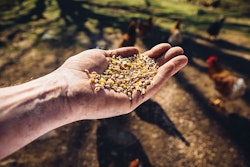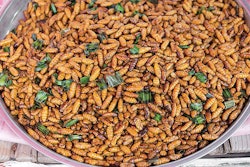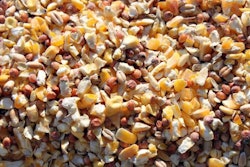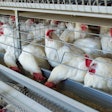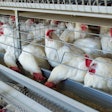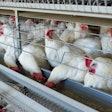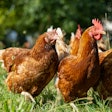
The benefits of a healthy Mediterranean diet are many and well-known worldwide. In fact, Mayo Clinic currently recommends on their website that “the Mediterranean diet incorporates the basics of healthy eating — plus a splash of flavorful olive oil and perhaps a glass of red wine — among other components characterizing the traditional cooking style of countries bordering the Mediterranean Sea.”
Read the entire report about a Mediterranean diet for broilers exclusively in the March issue of Feed Strategy.
Healthy eating is not exactly what we have in mind when it comes to feeding broilers, as such a notion is related with longevity in humans. But healthy is healthy no matter how we define it, and now that antibiotics are no longer fashionable in the broiler industry, we need to broaden our horizons if we want to remain financially healthy as broiler producers.
In broilers, a healthy diet is one that supports good gut health. This means a microbiota balance that excludes pathogens while favoring beneficial bacteria. Indeed, the majority of scientific research in the last decade or so has focused entirely on this aspect. At the same time, growth potential for modern broiler genetics continues unabated, and this without a doubt increases the oxidation stress caused by increasing metabolic demands. Much ink and digital power have been exerted over the issue of metabolic oxidation stress, but the industry remains unmoved. Perhaps oxidation stress suffers the same fate as immunity; if you cannot easily measure something, then it is easier to ignore it. Indeed, it is currently difficult to measure the negative effects of oxidative stress, and, as such, the level of performance loss remains unclear. That we are not able to quantify such significant aspect of nutritional distress does not mean birds of high genetic potential do not suffer from it. To the contrary, the negative effects are well documented in scientific literature, even though there is still work to be done to transfer such knowledge down to commercial level.


